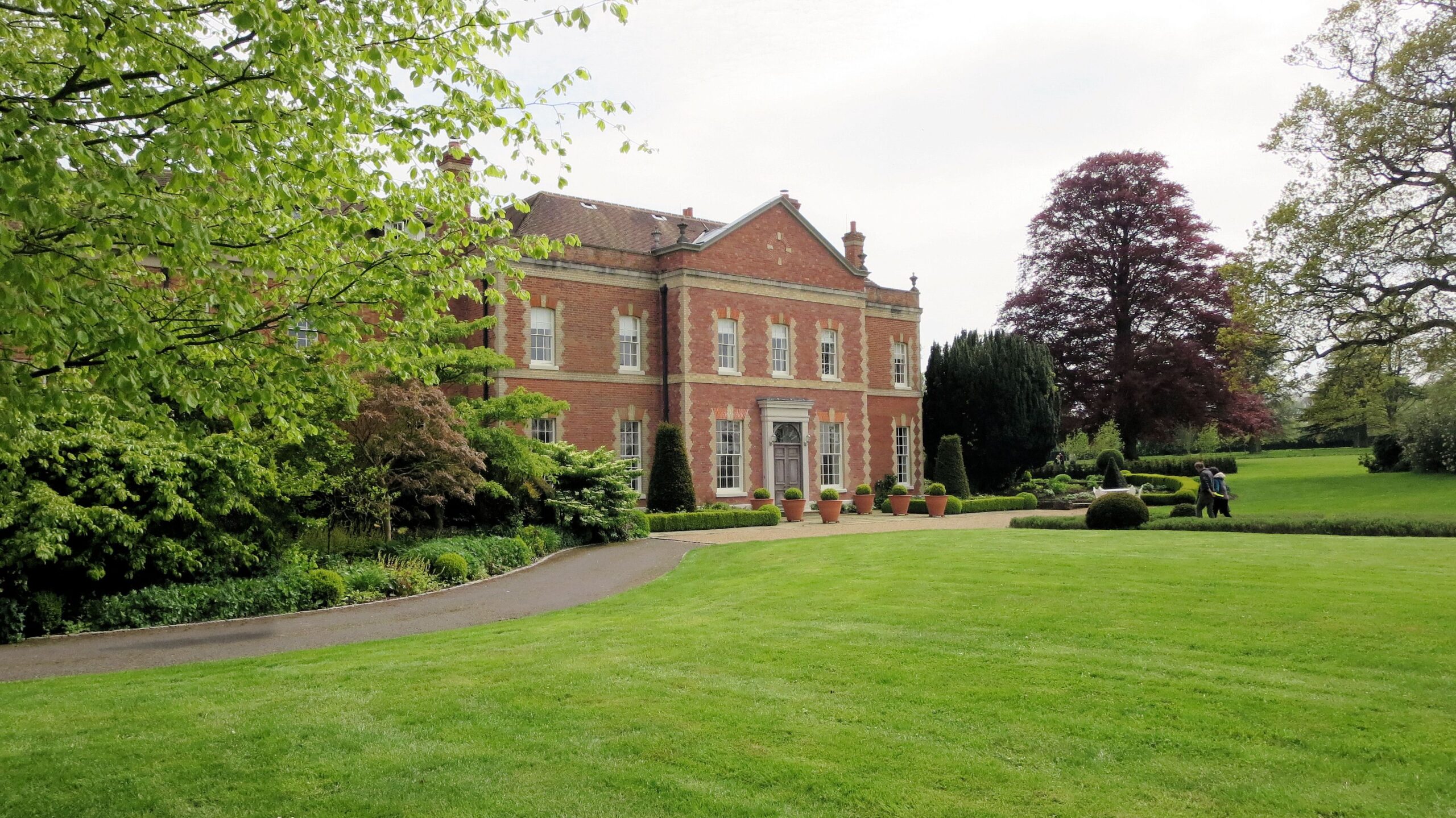Solar scheme investment sees £150m of taxpayers’ cash go up in smoke
North Hampshire’s idyllic Ashe Park estate bears all the hallmarks of a National Trust treasure. A yew tree maze, two lakes, five cottages, a tennis court and a “party barn” are spread around 232 glorious acres of English countryside. Perched on a hill at the heart of the estate sits a palatial country house once frequented by Jane Austen.
The owner of this beautiful manor is the Dubai-based businessman Liam Kavanagh. The people who unwittingly financed the £22 million purchase of Kavanagh’s dream home are the unfortunate residents of Thurrock, an Essex borough situated 90 miles away on the Thames Estuary.
Between 2017 and 2020, Thurrock council invested almost £400 million — money it had borrowed from other local authorities — in bonds issued by Kavanagh’s company, Rockfire Capital. The interest was to be paid from the revenues generated by 32 solar farms, owned by Rockfire, dotted around the UK.
Thurrock council alleges that Kavanagh, 47, “misused” about £150 million of its funds for his own benefit. In an extraordinary legal claim filed last month, the council claims that Kavanagh splurged £9.1 million on a Bombardier private jet, £13.7 million on a yacht, £3 million on a property in Mallorca and £2 million on a Bugatti Chiron sports car.

Thurrock’s high-risk gamble has made it the poster child of egregiously incompetent local authorities — one of many, including Croydon, Woking and Slough, which have been driven into financial ruin by foolish bets made with taxpayers’ money.
Papers show that Kavanagh, who strenuously denies the council’s allegations, bought the Ashe Park estate just months after persuading the council to make a £40 million instalment of its investments into his doomed solar scheme.
Now, in further filings also seen by this newspaper, it has emerged that not only did Thurrock fall for the charms of Kavanagh, who dined with councillors at the London celebrity haunt, the May Fair hotel, but that it sunk millions more into another duff investment.
Thurrock lost a further £24.2 million on a separate portfolio of high-interest bonds backed by loans to small and medium-sized enterprises (SMEs). The bonds, issued on behalf of a company called Just Cash Flow, carried an interest rate of 8.5 per cent. As anyone with a rudimentary knowledge of finance should have known, 8.5 per cent was an extremely high level of interest, particularly as the bonds were issued in 2016, at a time when Bank of England interest rates were nearly zero per cent.
High rates indicate high risk, but the 8.5 per cent bond coupon was only the start of it. Legal documents claim that some of the loans to the SMEs that the bonds were funding had an interest rate of 25 per cent, and were unsecured.
The council received £4.7 million in interest on the bonds until they defaulted. When they matured in November 2021, they were not repaid, and a little over a year later Just Cash Flow collapsed into administration. Thurrock has not received a penny since.
The council was advised to invest in the scheme by a company called Bedford Row Capital Advisers, which allegedly rated the bonds as ten out of ten and “A-plus” on its “asset recoverability rating”. The council trusted the firm’s judgment despite it not being regulated by the Financial Conduct Authority. Bedford Row collapsed and entered voluntary liquidation in May.

At the time of the investments, Thurrock was a Conservative council. A new Labour administration is now suing to try to recoup some of the money lost by its predecessors. It is suing Kavanagh and a regulated financial firm called Laven Advisors, for which Bedford Row acted as an appointed representative. Laven is understood to be taking a dim view of the claim, which it intends to defend.
While the cases trundle through the courts, Thurrock’s residents are left picking up the tab. Since declaring effective bankruptcy in 2022 — largely as a result of losses on its investments with Kavanagh — Thurrock has raised its council tax by almost 20 per cent, slashed services for residents, and started selling off assets. The council-operated Thameside Theatre is in danger of closing.
In the quiet, humdrum town centre of Grays, in the Thurrock borough, disillusionment is not hard to find. Margaret, a pensioner sitting on a bench outside the Greggs bakery, said: “Now we’ve got bin collections every fortnight, when they were every week. With the hot weather, it makes the bins smell and there’s more flies.”
Thurrock is one of several councils that sought to mitigate huge cuts in funding from central government — it fell 55 per cent in real terms between 2010 and 2020 — by making commercial investments using money borrowed from the Treasury or, in Thurrock’s case, from other councils.
But the extent of the risks they were taking seems particularly egregious. It was only in 2008 that 108 councils got lured into depositing more than £1 billion of taxpayers’ cash into Icelandic banks. They, like Just Cash Flow, were offering extremely high interest rates and also ended up collapsing, unable to make their repayments. In that case, most of the money was recovered, but not before causing a big cash squeeze for councils.
Experts say that the sort of financial calamities that are unfolding at Thurrock were allowed to build up out of sight because of the coalition government’s decision to scrap an organisation called the Audit Commission, set up in 1982 to scrutinise local authority initiatives.
Tony Travers, a professor in the department of government at the London School of Economics, said: “Since the commission was abolished, the government has had no capacity to work out what condition the finances of individual local authorities are in, in a system that has been very permissive [for commercial investment].”
The Local Government Association says councils in England are facing a funding gap of £6.2 billion over the next two years. A spokesman for the Ministry of Housing, Communities & Local Government said it was working on addressing the pressures faced by councils and planned to reform the local audit system.

That’s coming too late for the residents of Thurrock. In November 2022, the directors of Kavanagh’s Rockfire, which by this point had been renamed Toucan Energy, called in administrators from Interpath, who sold its solar portfolio to Schroders, the investment manager, for £700 million in January.
Even with its share of the proceeds from the sale, Thurrock council still expects to lose £157 million from its dealings with Kavanagh, excluding the award of any damages.
Thurrock alleges that it was fraudulently induced into investing taxpayers’ money in Kavanagh’s solar project. The council cites emails appearing to show Kavanagh dismissing warnings from colleagues that Rockfire was providing overly optimistic forecasts for the power prices that would be generated from its solar farms.
“Prices go up and down, valuations go up and down,” Kavanagh wrote in an email in January 2020. “This is a very, very long-term play with the council … If in any particular year, due to prices or breakdowns whatever the sun doesn’t shine, it won’t be a problem for them. These funds … will be used to create a new family investment office and to create wealth for years to come, this has always been my plan.”
A spokeswoman for Kavanagh said he was confident that Thurrock’s claim would be thrown out on the basis that it had not been served in a valid way.
“Irrespective of the question of jurisdiction, Mr Kavanagh strenuously denies the allegations. If and when necessary to do so, and should the court permit the claim to proceed, Mr Kavanagh will be putting forward a full defence,” the spokeswoman added.
As lawyers get to work on the case, Thurrock is forced to muddle through. John Kent, the new council leader, said Thurrock was facing a minimum of five years of hardship before its finances are on anything resembling a stable footing.
In Grays, Rachel, 39, said her job at a school in Thurrock was barely bringing in enough to pay her bills, with higher council taxes adding to the pain.
“We’re getting less and paying more — it’s just really hard,” she said, hugging one of her three daughters. “We’re trying to be normal, just to live, but it’s difficult.”




Post Comment